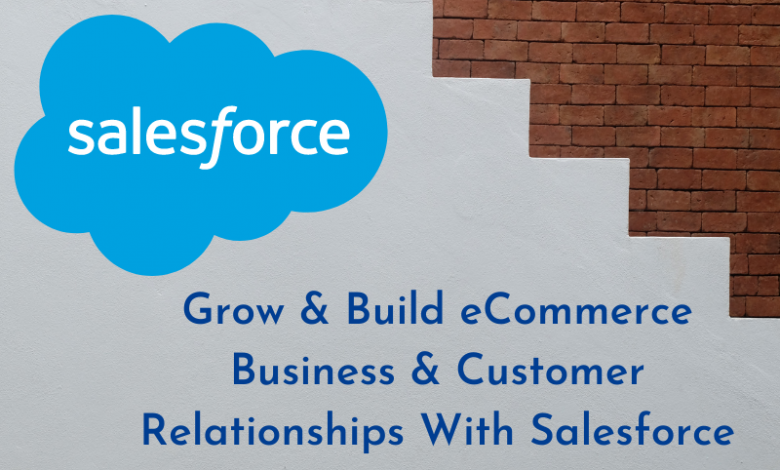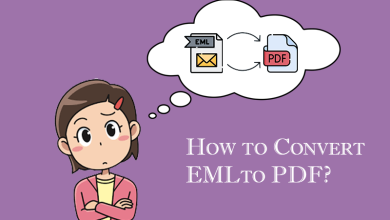Grow & Build eCommerce Business & Customer Relationships With Salesforce

According to a report from Gartner, Salesforce has been recognized as a leader in Sales Automation and customer service. This indicates that in the CRM market, Salesforce is spreading its roots being one of the popular products. Moreover, Salesforce is well-accepted as a robust tool. It can locate sales, marketing challenges, and customer service.
What do you think, all such will make Salesforce a one-size-fits-all solution? Well, no need to worry. We are here to help you in figuring this out
Today, our seasoned CRM consultants have come up with a post that will include rarely known information about the Salesforce CRM system, its importance in an eCommerce business, and its pros and cons. So, let’s start without any delay.
What Is A Salesforce CRM System?
A technology that’s used to manage relationships and interactions of your company with its customers and potential customers, is known as Customer Relationship Management (CRM). The target of CRM is simply to enhance business relationships to let your business grow. Also, a CRM system assists companies in staying well-connected with customers, simplify processes, and enhance profitability.
A Typical CRM System Covers The Following:
- Contact Database
- Marketing Tools
- Technical Support Option
- Organizational Tools for Your Support Team
When talking about CRM, people usually refer to a CRM system that assists with sales management, contact management, agent management, and more. Now, you can use CRM to handle customer relationships across the whole customer lifecycle, digital commerce, sales, spanning marketing, and customer service interactions.
A CRM solution assists you in targeting relationships of your organization with individual people, embracing service users, customers, suppliers, or colleagues all through your lifecycle, incorporating finding new clients, offering support and additional services, and winning their business all through the relationship.
Why Salesforce CRM Is Important For eCommerce Business?
You can connect a CRM platform with other business apps that assist you in developing customer relationships. Today, CRM solutions are more open and also hold the caliber to integrate with your best business tools, like accounting and billing, document signing, and surveys, so that the flow of information goes both ways to offer you a real 360-degree view of your customer.
1. Improved Marketing & Promotion
When we integrate eCommerce with CRM, it provides the business owners a centralized place for their customer data. This improves all marketing activities, starting from planning to targeting and then execution. After your customers receive highly personalized email marketing, which is the type of marketing and is only possible with CRM, will lay an impact directly on the income of your online store.
2. Enhance Sales Team Performance
Any store that takes the assistance of sales representatives or uses customer service can get benefitted from CRM integration. With access to details of customers, incorporating payments, and also products viewed, the sales team can also cross-sell or upsell and that also more effectively. This even relates to the B2B eCommerce website whose sales teams are strengthened to negotiate payment terms that are based on the past payment history of clients.
3. Better Inventory Planning & Forecasting
When used correctly, a CRM system will offer you data related to the most popular products of your store. This permits you to use true sales data to predict manufacturing, sales purposes, and sourcing.
4. Drive Services After Sale
After-sales services should be a piece of each online business, despite what they sell. It enhances customer loyalty, Customer Lifetime Value, and improves sales.
5. Minimize Losses & Costs
If you don’t integrate your online store with a CRM system, it will likely experience issues because of simple typos and other errors of data entry. When it comes to manual data transfer, it is much likely to catch up with issues that can impact customer loyalty and sales directly. The best answer is eCommerce and CRM integration.
6. Improve Your Сompetitive Edge
Synchronized, automated data transfer also enhances the entire efficiency of your business by making sure that communication and order fulfillment is done in time. This will make your business stay ahead of other stores competing in the same market.
Pros & Cons Of The Salesforce CRM For eCommerce
Now, we will check out the pros and cons of Salesforce to assist you to get benefitted from Salesforce Implementation services, if you are going to choose this platform for integrating with your business.
Products For Many Business Needs
Advantages Of Many Business Needs
Salesforce is not just a Sales CRM, it incorporates key products, known as Clouds and apps to offer extensive support marketing processes and customer service also. Moreover, you can launch and develop your eCommerce application or portal for partner and customer communication using the Lightning Platform.
Disadvantages Of Many Business Needs
Picking more products to add to your solution will increase your expenses. So, if you want to meet your extensive needs, you will have to pay for it.
Customization Capabilities
Advantages Of Customization Capabilities
Well, Salesforce comes with a rich customization caliber. You just need to pick the degree of customization for your Salesforce solution. Relying on your requirements, the solution can be arranged with point-and-click tools or customized deeply with code.
Disadvantages Of Customization Capabilities
With various customization options, you can simply over-customize your Salesforce solution. Although, the more complicated features and custom fields your solution holds, the tough it will be for your team to use them fully. This may lead to low CRM adoption and less employee productivity.
Pricing Model
Advantages Of Pricing Model
The pricing model of Salesforce is scalable. Your subscription fees depend directly on the number of Salesforce users your organization has, and you can simply upgrade your Salesforce edition or buy more user licenses if the number of users at your organization increases.
Disadvantages Of Pricing Model
With the extra cost of customization, the development of custom apps ideas, and the integration that is needed to adjust your Salesforce solution to make your business survive, you will notice that the total expenditure of your Salesforce CRM will go high.
Cloud Deployment
Advantages Of Cloud Deployment
A cloud-based CRM, Salesforce has various benefits that come from its cloud nature:
- Salesforce CRM is accessible 24*7 from anywhere all over the world.
- Cost-effectiveness of Salesforce solution as compared to on-premises CRMs because you need less IT resources to launch CRM. There’s no extra need to buy any physical infrastructure or hire a team of developers.
- The cloud deployment considerably eases Salesforce administration and configuration, which states that you can perform with a smaller IT department.
Disadvantages Of Cloud Deployment
Salesforce is completely dependent on an internet connection. The connection needs to be stable to make sure that the consistency of business transactions and processes is supported by CRM.
Extensive Out-Of-The-Box Functionality
Advantages Of Extensive Out-Of-The-Box Functionality
The notable functionality of Salesforce products for distinct business needs and industries permits supporting the complicated business operations by managing customer service and sales teams and also by automated workflows. Salesforce Sales Cloud holds the features that support all its stages, starting from prospecting to the closure of sales deals and follow-up.
Disadvantages Of Extensive Out-Of-The-Box Functionality
All the Salesforce editions that are available for the purchase hold system limitations, such as the restriction on the number of validation rules, file shares, or custom fields crafted per object that may crash certain business operations.
Conclusion
Every eCommerce business needs to integrate CRM into its business processes. It’s high time now. You should also integrate CRM with your online business to fulfill orders perfectly and offer customer service as expected.
You may hire a leading Salesforce Development Company to ease your job and enhance your business’s productivity.



